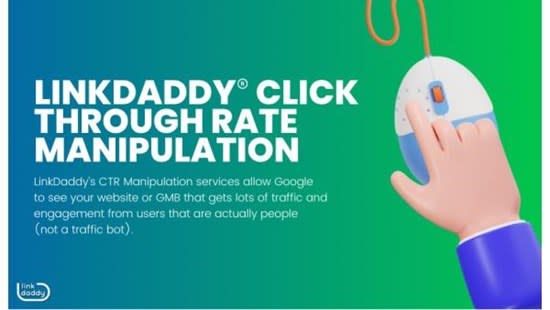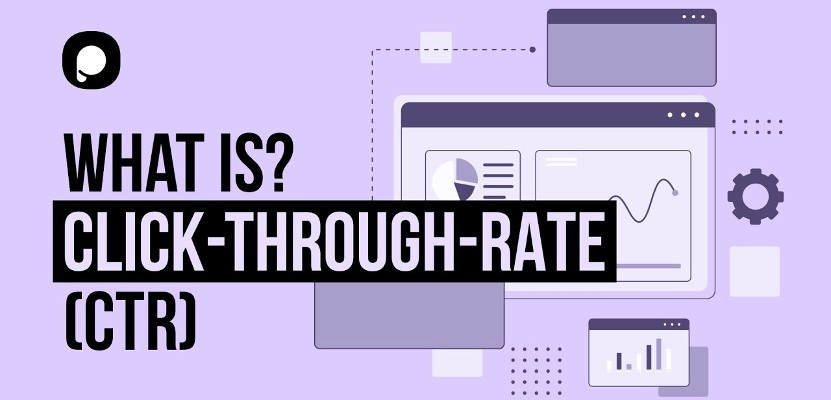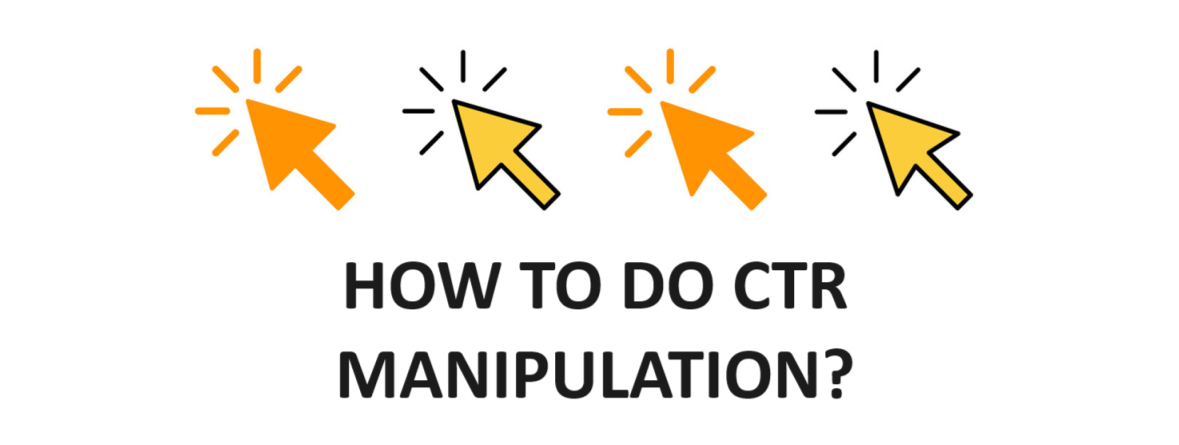LinkDaddy CTR Manipulation: Specialized Solutions for Improved Web Traffic
LinkDaddy CTR Manipulation: Specialized Solutions for Improved Web Traffic
Blog Article
Exploring the Relationship In Between CTR Control Services and User Habits
In the realm of digital advertising and marketing, the influence of click-through rate (CTR) adjustment services on user actions continues to be a complex and intriguing subject. As on the internet platforms significantly depend on CTR metrics to measure the success of material, items, and services, understanding just how these controlled rates influence customer involvement and decision-making processes is extremely important. The interplay between CTR control and customer behavior increases concerns concerning credibility, credibility, and the ethical effects of such practices. By studying the elaborate relationship in between CTR manipulation services and individual actions, fascinating understandings arise that may improve our understanding of electronic advertising and marketing approaches and their impacts on consumers.
Impact of CTR Manipulation on Behavior
Assessing the impact of Click-Through Price (CTR) control on user habits reveals vital insights right into the dynamics of online involvement. CTR control entails unnaturally inflating the number of click a particular web link or advertisement to trick users and internet search engine. This practice can lead to a distorted perception of a web page's appeal or significance, ultimately influencing customer actions.

In addition, CTR adjustment can alter the data used by algorithms to personalize customer experiences. This can result in customers being offered content that does not straighten with their preferences or passions, inevitably causing a decrease in user complete satisfaction and involvement. Comprehending the impact of CTR manipulation on individual actions is essential for maintaining openness and count on in on the internet interactions.
Customer Interaction With Manipulated CTR
User involvement with adjusted CTR data commonly leads to manipulated perceptions of on-line content appeal and relevance. When individuals engage with content based on synthetically inflated Click-Through Fees (CTR), they might think that particular info, products, or solutions are a lot more prominent or credible than they actually are. This can cause customers choosing based upon deceptive information, bring about potentially negative results.
Involvement metrics like likes, shares, remarks, and time invested in a webpage are usually affected by CTR manipulation. Users may be more likely to engage with web content that appears to have greater involvement rates, even more continuing the cycle of manipulated assumptions. Because of this, material developers and advertisers may prioritize generating material that generates high CTR as opposed to concentrating on producing truly valuable and appropriate product.

Emotional Impacts of CTR Adjustment

Moreover, the mental effects of CTR control can additionally manifest in modified decision-making procedures. Customers may be much more likely to click on web content exclusively based on its viewed appeal, as opposed to its real worth or relevance to their needs. This behavioral shift can result in a shallow interaction with online web content, where individuals might forget premium yet much less preferred offerings for those with artificially increased CTRs.
Fundamentally, the emotional ramifications of CTR adjustment highlight the importance of maintaining transparency and credibility in on the internet communications to promote genuine customer interaction and depend on.
Ethical Factors To Consider in CTR Adjustment
Considering the ethical ramifications of adjusting click-through rates (CTR) in on the internet platforms is essential for preserving honesty and trust within the electronic environment. CTR manipulation increases issues about tricking customers, distorting information analytics, and endangering the reputation of online content. One significant ethical consideration is the possible effect on customer autonomy and decision-making. By unnaturally pumping up CTR, users might be misdirected right into clicking web links or ads they would certainly not have selected otherwise, bring about an insincere online experience. In addition, CTR manipulation can skew the performance metrics that organizations rely upon to make tactical choices, ultimately influencing market competitors and customer count on.
An additional ethical facet to contemplate is the justness of adjusting CTR to acquire an unjust advantage over competitors. Taking part in such methods not just breaches principles of fair game however additionally threatens the depend on that individuals place in on the internet systems. It is crucial for Visit Your URL services and digital marketing experts to maintain honest criteria in their practices to make certain openness, reliability, and long-term sustainability in the online environment.
Ramifications for Digital Marketing
CTR control can lead to skewed data analytics, misleading marketers right into thinking that their projects are doing far better than they in fact are. When individuals recognize that CTRs have been controlled, it can wear down trust in the brand name, leading to long-lasting unfavorable repercussions for client commitment and brand reputation.
Furthermore, using CTR control services can create an unfair affordable landscape, where business that engage in such practices acquire a fabricated benefit over those that abide by moral advertising standards. This can stifle advancement and creativity in electronic advertising and marketing, as success becomes even more about adjustment tactics than providing real value to consumers. Ultimately, the effects of CTR manipulation Full Article for digital advertising extend beyond temporary gains, impacting the total sustainability and reliability of advertising efforts in the digital realm.
Verdict
To conclude, the relationship in between CTR control services and individual habits is complicated and multifaceted. The impact of CTR adjustment on actions, user involvement with controlled CTR, psychological effects, moral factors to consider, and ramifications for digital advertising and marketing all play a duty fit this relationship. Comprehending these dynamics is vital for marketers and scientists alike in order to browse the ethical implications and optimize the performance of their electronic advertising and marketing approaches.
Report this page